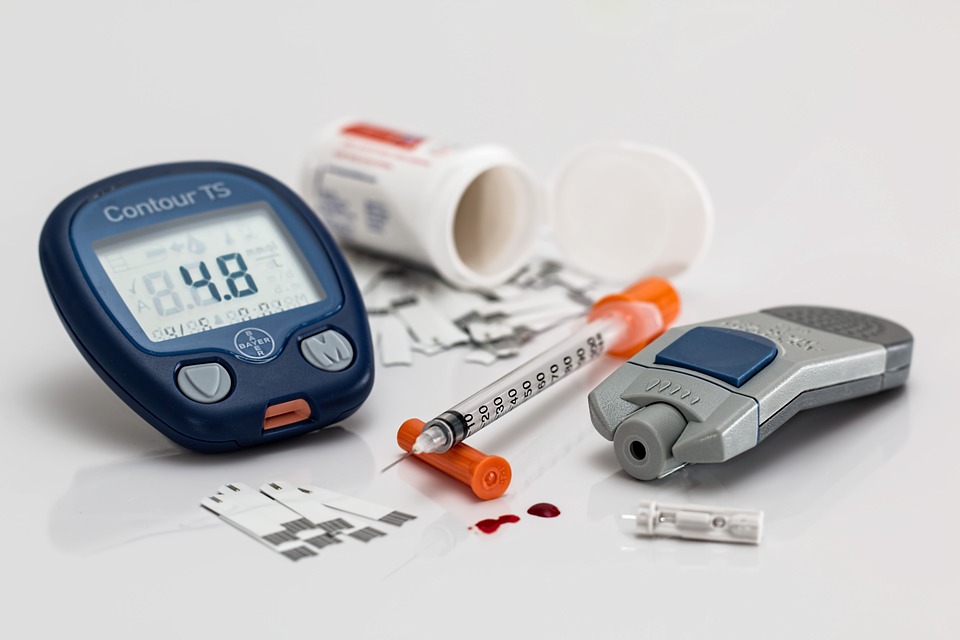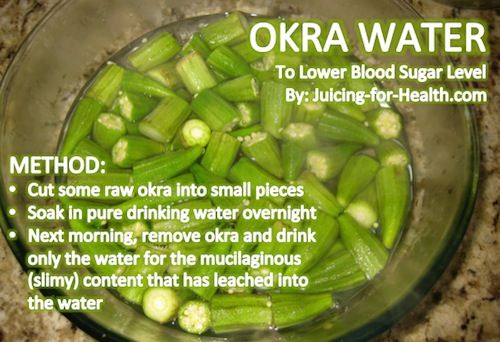Diabetes is a chronic, metabolic disease characterized by elevated levels of blood glucose (or blood sugar), which leads over time to serious damage to the heart, blood vessels, eyes, kidneys, and nerves. About 422 million people worldwide have diabetes, the majority living in low-and middle-income countries, and 1.6 million deaths are directly attributed to diabetes each year. Both the number of cases and the prevalence of diabetes have been steadily increasing over the past few decades.
The hormone insulin moves sugar from the blood into your cells to be stored or used for energy. With diabetes, your body either doesn’t make enough insulin or can’t effectively use the insulin it does make. Untreated high blood sugar from diabetes can damage your nerves, eyes, kidneys, and other organs.
There are a few different types of diabetes:
Type 1 diabetes is an autoimmune disease. The immune system attacks and destroys cells in the pancreas, where insulin is made. It’s unclear what causes this attack. About 10 percent of people with diabetes have this type.
Type 2 diabetes occurs when your body becomes resistant to insulin, and sugar builds up in your blood.
Prediabetes occurs when your blood sugar is higher than normal, but it’s not high enough for a diagnosis of type 2 diabetes.
Gestational diabetes is high blood sugar during pregnancy. Insulin-blocking hormones produced by the placenta cause this type of diabetes.
A rare condition called diabetes insipidus is not related to diabetes mellitus, although it has a similar name. It’s a different condition in which your kidneys remove too much fluid from your body. Each type of diabetes has unique symptoms, causes, and treatments.
Symptoms of diabetes
Diabetes symptoms are caused by rising blood sugar.
General symptoms
The general symptoms of diabetes include:
- increased hunger
- increased thirst
- weight loss
- frequent urination
- blurry vision
- extreme fatigue
- sores that don’t heal
Symptoms in men
In addition to the general symptoms of diabetes, men with diabetes may have a decreased sex drive, erectile dysfunction (ED), and poor muscle strength.
Symptoms in women
Women with diabetes can also have symptoms such as urinary tract infections, yeast infections, and dry, itchy skin.
What is Okra?
Okra is a popular vegetable in Nigeria, it is cultivated mostly in the northern and eastern parts of the country. Okra is also known as gumbo or ladies fingers. The plant is a good source of minerals, vitamins, antioxidants, and fiber. It contains a sticky juice that people use to thicken sauces. Okra is popular in the southern United States, parts of Africa and the Middle East, the Caribbean, and South America.
According to the U.S. Department of Agriculture (USDA) National Nutrient Database, one cup of raw okra, weighing 100 grams (g) contains:
- 33 calories
- 1.9 g of protein
- 0.2 g of fat
- 7.5 g of carbohydrates
- 3.2 g of fiber
- 1.5 g of sugar
- 31.3 milligrams (mg) of vitamin K
- 299 mg of potassium
- 7 mg of sodium
- 23 mg of vitamin C
- 0.2 mg of thiamin
- 57 mg of magnesium
- 82 mg of calcium
- 0.215 mg of vitamin B6
- 60 micrograms (mcg) of folate
- 36 mcg of vitamin A
Okra also provides some iron, niacin, phosphorus, and copper.
Okra is a source of antioxidants. Okra, its pods, and seeds contain a variety of antioxidant compounds, including phenolic compounds and flavonoid derivatives, such as catechins and quercetin. Scientists think that these compounds may help lower the risk of cancer.
How to Use Okra Water For Diabetes
According to a study published in the Journal of Pharmacy and Bio-allied Sciences, the peel and seeds of the okra plant have properties that can help manage diabetes. The research showcased that a solution of water with okra soaked in it helped bring down blood sugar levels in diabetic rats.
Roasted okra seeds, which have long been used in Turkey to treat diabetes, have also been studied and proven to have a positive effect on lowering blood sugar. Okra is high in fiber. Eight medium-sized pods are estimated to contain 3 grams of fiber.
This bulk fiber quality has several benefits. It helps digestion, cuts hunger cravings, and keeps those who eat it fuller for longer. Foods that are high in fiber content are an important part of dietary treatment options for diabetes. Increased dietary fiber intake has been shown to promote better glycemic control and improve insulin sensitivity.
There is evidence that the seed extracts of okra have an antioxidant, anti-stress effect in the bloodstream of mice. Managing stress levels is an important part of managing diabetes. Long-term, high-stress levels can cause blood sugar levels to spike. Mental health should be a part of any diabetes treatment plan, and using okra and its derivative seeds can be a part of that plan.
Drinking “okra water” is a popular new method of using okra. Some have even suggested that drinking it helps lessen diabetes symptoms. The drink is made by putting okra pods in water and soaking them overnight. Some of the valuable nutrients in the skin and seed pods will be absorbed into the water.
If you’re not crazy about the taste of okra, drinking this okra water solution is a quick and simple way to derive the benefits of okra without eating it. Some people prefer to cut the okra into thin slices instead of soaking the pods whole. If you’re going to prepare okra water this way, be prepared for a drink that is slightly bitter.
Risks and precautions
Eating too much okra can adversely affect some people.
Gastrointestinal problems: Okra contains fructans, which is a type of carbohydrate. Fructans can cause diarrhea, gas, cramping, and bloating in people with existing bowel problems.
Kidney stones: Okra is high in oxalates. The most common type of kidney stone consists of calcium oxalate. High oxalate foods, such as okra and spinach, may increase the risk of kidney stones in people who have had them previously.
Inflammation: Okra contains solanine, which is a toxic compound that may trigger joint pain, arthritis, and prolonged inflammation in some people. Potatoes, tomatoes, eggplant, blueberries, and artichokes also contain solanine.
Blood clotting: Vitamin K helps the blood clot, and okra’s high vitamin K content may affect those who use blood-thinning drugs, such as warfarin or Coumadin. Blood thinners help prevent the formation of blood clots that can lead to a stroke or heart attack.
People who use blood thinners or who have a risk of blood clots should maintain a regular consumption of vitamin-K-rich foods. ALSO READ Can Okra Water Boost Ovulation?







